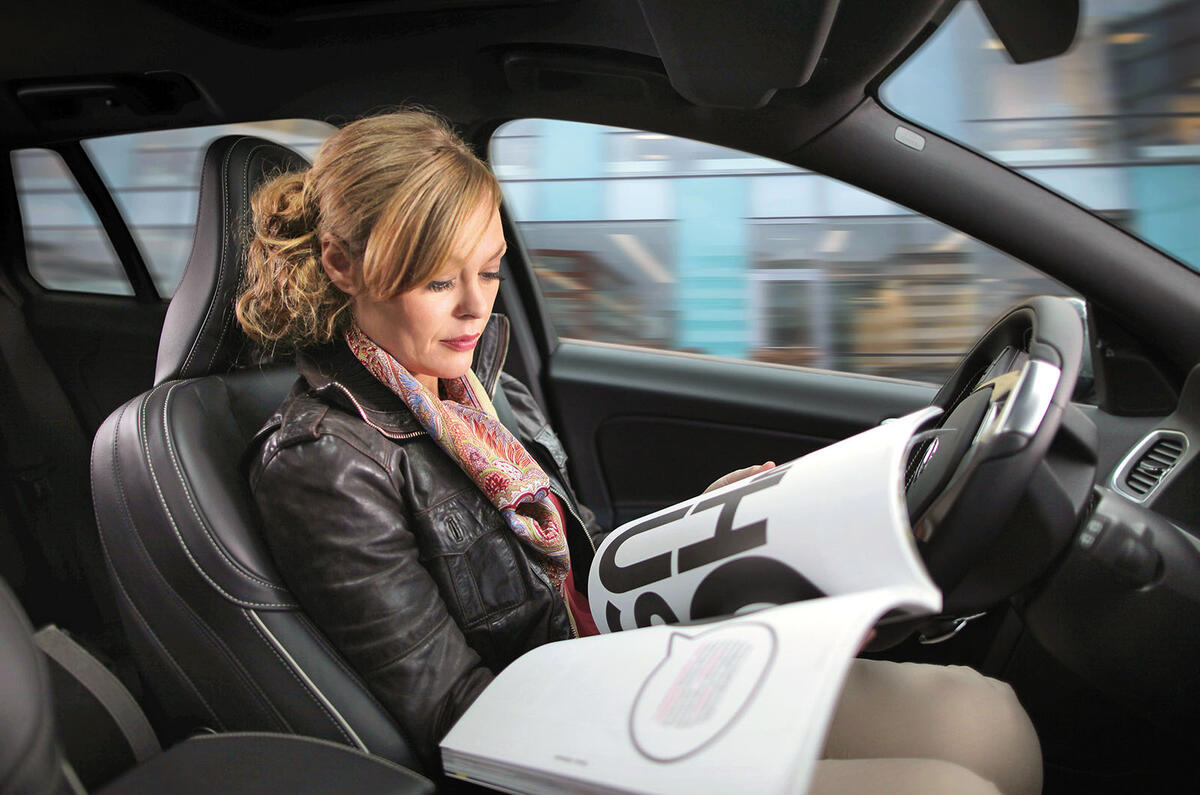Buying insurance for autonomous cars should be little different to regular vehicles, according to the Association of British Insurers (ABI).
The ABI has published a report with industry body Thatcham Research in response to the Department for Transport’s consultation on how to support the developing market for self-driving cars and technologies. Autonomous vehicles could be on public roads as soon as 2021.
The report suggests consumers shouldn’t see much difference from the current motor insurance system when autonomous cars come to market.
Who should autonomous cars save in a crash? Have your say here
Among the main points it makes are that drivers should be able to buy a single motor insurance policy to cover both autonomous and manual drivers. It also suggests that insurers should have a legal right to recovery, which would allow them to reclaim costs from manufacturers and software companies if they are found to be at fault for an accident.
The report recommends that strict rules be established and enforced on what drivers can and cannot do behind the wheel or autonomous cars, and stresses that existing cars that offer assistance systems, such as emergency braking and lane assist, should not be confused with fully self-driving vehicles.
The ABI says that insurers want road users to have confidence that consumers involved in accidents involving autonomous vehicles will not be treated any differently to those involving manually driven cars. It says having separate product liability policies for automated driving modes would be too complicated.
Autonomous cars with Emoji displays are on their way
James Dalton, director of general insurance policy at the ABI, said: “With these proposals, insurers are showing their commitment to the new technology, and to ensuring that anyone injured in a road accident continues to get quick and easy access to help and support, as they do at the moment.”
Peter Shaw, chief executive of Thatcham Research, said: “Building driver confidence is at the heart of this consultation paper, so keeping things simple and clear is paramount. Similarly, there is still much work to be done by legislators and the automotive industry to give drivers absolute clarity and confidence around what automated driving systems are capable of doing and under what circumstances they can be used.”
Mr Shaw also suggested restrictions in where automated driving should be permitted. “We would advocate geo-fencing and restricting automated driving to specific roads, introducing a testing regime to assess automated driving systems to ensure they can handle road scenarios safely and, in the unfortunate case of there being an accident, ensuring it is clear to everyone whether the car was operating in automated mode or not,” he said.





Join the debate
Add your comment
Wishful thinking
Standard of driving